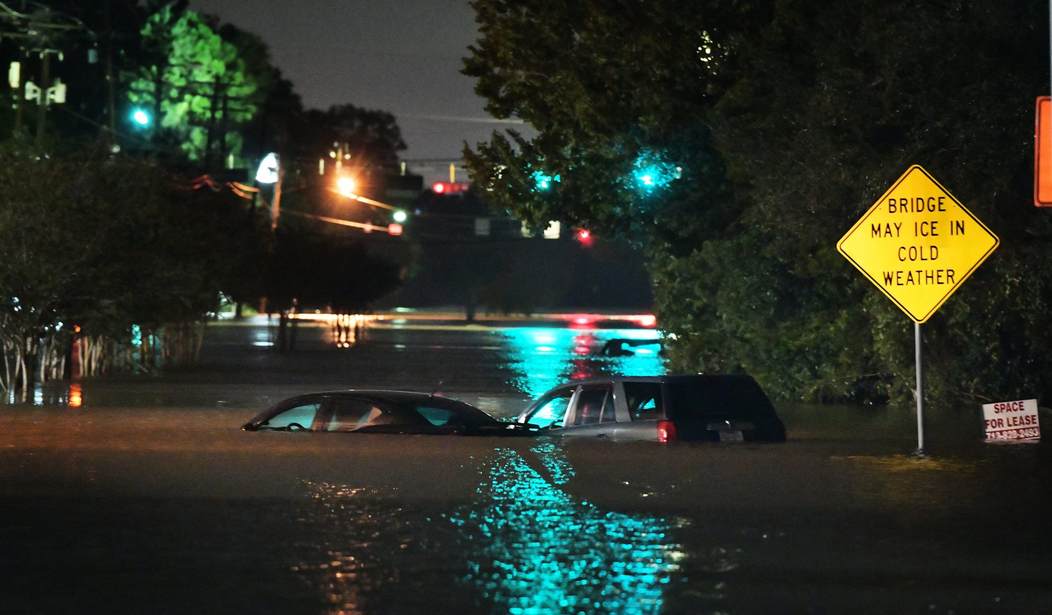Health and Human Services Secretary Tom Price said preliminary estimates from Hurricane Harvey show about half a million people will have their living accommodations altered to some degree by the storm and “will have to be cared for in some way to make certain that we can address their needs.”
“Now, some of them will be able to get FEMA’s commitment as to be able to get them back in just as rapidly as possible, understanding that water is absolutely destructive. And so they’re going to need to be things that will be done to make certain that their homes or their apartments or their living situation is safe,” Price told Fox this morning, noting that “the healthcare challenges are significant.”
“And most individuals that are harmed by a major storm like this and major flooding episode aren’t harmed in the storm itself, but have challenges later because of their medical condition,” he added. “So chronic medical illnesses, chronic diseases that can’t be met because the doctor’s office is closed. People can’t get to their doctor. They can’t get to their dialysis unit. They can’t get to their pharmacy.”
FEMA Administrator Brock Long said at a morning news conference that the operation is “still in life-saving, life-sustaining mode.”
“We have over 230 shelters operating in Texas with over 30,000 people. But I don’t want to get fixated on numbers, because those numbers are going to change in the next 30 minutes, but just to let the people of Texas know that we are supporting the efforts to provide mass care — not only mass care, but also medical care to those who have been displaced,” Long said. “And we understand that this is going to be a frustrating and painful process, but we’re trying to do everything we can to alleviate the situation.”
More than 12,000 National Guard members have been deployed to aid in recovery and security. Overnight, the slow-moving storm drenched Beaumont and Port Arthur, Texas, in about 20 inches of rain.
“We’re continuing to watch the situation develop, and citizens in Louisiana are not in the clear,” Long warned.
FEMA recovery director Alex Amparo said that as of this morning the agency has more than 195,000 registrations of individuals asking for assistance and has provided over $35 million in financial assistance to those people.
“We also have the transitional shelter assistance program; over 1,700 families last night in over 2,000 room in five different states that we’re providing assistance to,” Amparo said. “…This is an unprecedented event. We’ve seen our call volume increase and skyrocket larger than ever before. So has the registrations.”
Long acknowledged that “shelters obviously are not ideal, and unfortunately, people are going to be there for quite some time as we’re trying to mobilize people into hotels.” He added that there’s a “limited amount” of FEMA-manufactured housing to go around.
“It’s important to point out that this is going to be an incredibly large disaster for the country. It’s going to help us, you know, we’re — you know, to reshape some of the ways that we do business. We’re going to learn from it and go on,” the FEMA administrator said. “But I think it’s very important to recognize that the cost of this disaster, the economic cost to measure the disaster versus our physical cost as the federal government family — we’re not going to know a true cost for that for many, many years to come as we, you know, work together to understand what the communities are entitled to from public assistance or HUD Community Development Block Grants or the reimbursement cost. It takes a lot of time to understand the true cost of this disaster, but it’s going to be a huge one.”
Mexico has offered assistance, as was accepted by President Bush after Hurricane Katrina, but it reportedly has not been accepted by this White House.
“I don’t have an update on that at this time,” Acting DHS Secretary Elaine Duke said. “We are working with both Mexico and Canada to take advantage of their offers of support.”









Join the conversation as a VIP Member